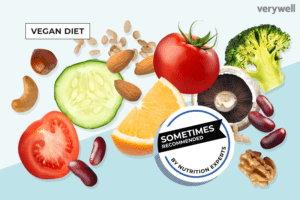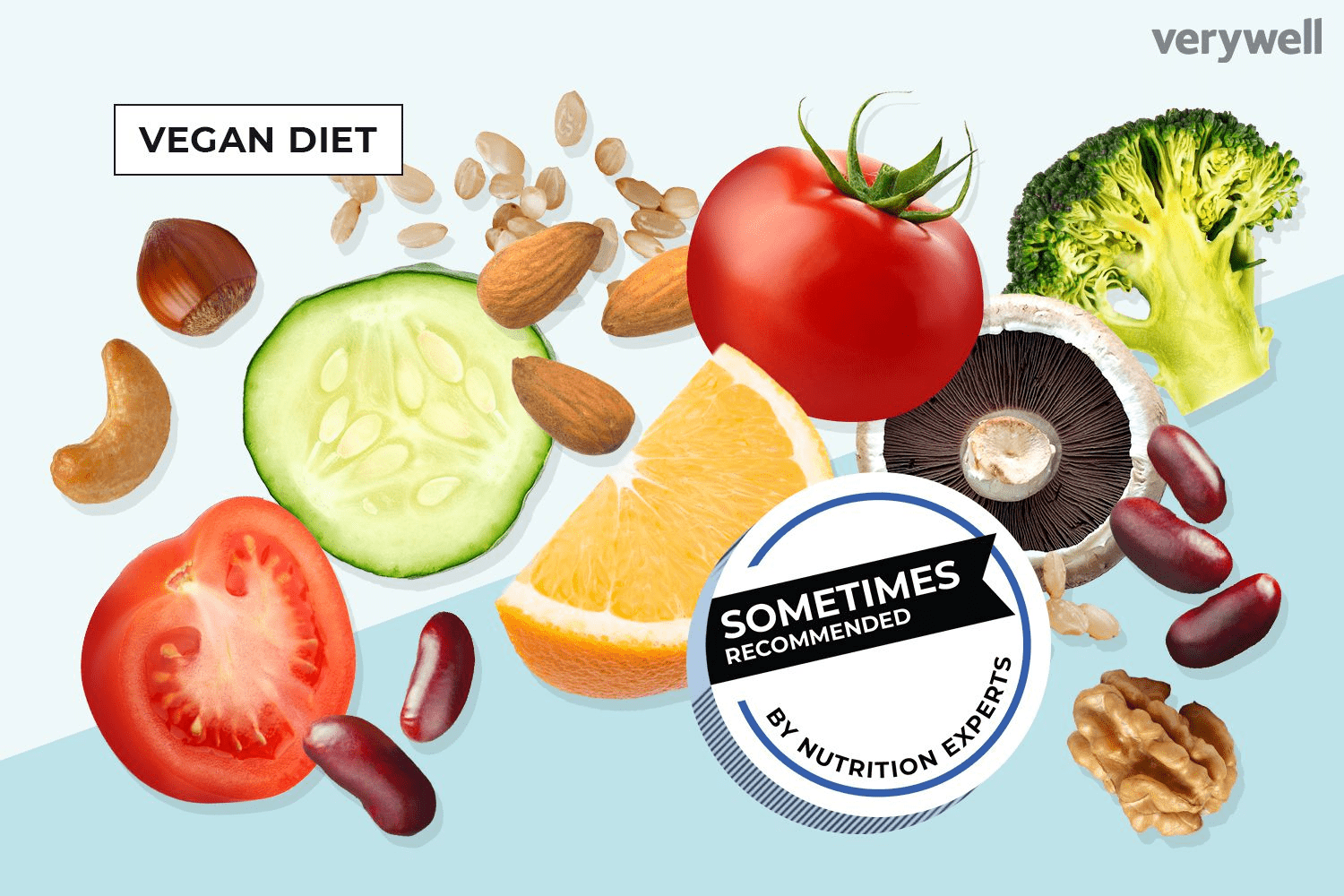
The importance of diets is often discussed in the medical and health literature. As with most discussions, there are many different schools of thought, from the pro-dietary, low calorie, high fat, and vegan diet, to the anti-fat, low calorie, low carb, or high fiber diet. This is an important topic in our society today since many children and adults alike suffer from deficiencies of certain essential nutrients.
The importance of diets can be understood by taking into consideration how they affect you as a consumer and as a person.1 As you begin to change your diet, it is important that you understand the impact it will have on you, both good and bad. Be sure to research the recommended foods and their effects on your body and your overall well-being. When choosing a healthy diet, it is important that you choose one that you can stick with and that will lead to a healthy life. After all, the goal is to live a long and healthy life!2
What Is a Vegan Diet?
Many people are beginning to wonder what a vegan diet is, and if it can be very beneficial if you are looking to live a healthier lifestyle. Basically, a vegan diet consists of no animal meats, eggs, dairy products, or any type of animal byproducts. So basically a vegan diet is eating vegetables, fruits, nuts, and other non-animal products. It sounds pretty restrictive, doesn’t it?3
More people are becoming interested in making changes so they can better their health. Eating plant-based foods such as fruits, vegetables, whole grains, beans and other alternatives that are nutritionally rich and low in saturated fats and cholesterol is ideal for improving cardiovascular health, while at the same time reducing your risk of heart disease, high blood pressure, certain cancers, stroke, diabetes, osteoporosis, and other debilitating diseases.4
Changing to a vegan diet is easy when you incorporate more plant-based foods into your diets such as legumes, whole grains, soy products, nuts, seeds, fresh fruits, and vegetables. Plant-based foods provide a wide range of nutrients that our bodies need. They provide a wide range of vitamins and minerals our bodies need to function properly and maintain normal bodily functions. By replacing saturated fats, sodium, sugar, and other unhealthy components of food with healthy plant-based foods such as nuts, whole grains, beans, and other legumes; you will be giving your body the nutrients it needs to maintain optimal health.5
The Benefits of a Vegan Diet
When a vegan diet was introduced to the world, it was created as a way of helping those who had taken on an unhealthy lifestyle through meat consumption. This became very popular in the vegan community because it allowed them to avoid eating meat and to enjoy all the benefits of vegan diets. Let’s take a look at some of the more popular benefits of vegan diets.6
The major health benefits of a vegan diet include everything from better skin health to better stamina. In recent years, there has been a lot of interest in vegan diets, and more people are starting to turn towards plant-based nutrition as a way of leading a healthy lifestyle.7 For purposes, generally, a vegan diet consists of a wide variety of fresh vegetables and fruits, with plant-based protein sources playing a major role in building muscle.
Another one of the benefits of vegan diets is that they usually consist of a high intake of antioxidants. Studies have shown that vegan diets can help reduce the risk of many cancers, including colon cancer. The main reason for this is that antioxidants can act as detoxifiers, removing built-up free radicals and other toxins in the body that can contribute to the growth of cancerous cells.8 By reducing the intake of fat, salt, and sugar, vegan diets can also assist in weight loss, helping to keep the weight off in between meals.
When most people think about getting plenty of nutrients, they tend to think about eating fresh fruit and veggie burgers and legumes such as black beans and lentils. While these foods are good for you, there are so many other delicious vegetables and fruits out there, and plenty of beans and lentils to add. By adding a wide variety of vegetables and fruits to your vegan diet, and avoiding red meats and processed foods, you are getting the same amount of vitamins, minerals, and nutrients as you would from eating these animal products, but without the animal cruelty. And by eating a wide variety of whole grains and other plant-based foods, you can also get most of the iron, calcium, vitamin D, and other nutrients your body needs, which are not typically found in meat and dairy products.9
Most people associate inflammation with conditions such as arthritis, or chronic fatigue. However, research has shown that certain vegetarian foods have positive effects on reducing the inflammation in your body. Some evidence even suggests that there may be some anti-cancer benefits as well! By eliminating all animal products, you can dramatically reduce your risk of heart disease and high blood pressure by adding a wide variety of colorful, nutrient-rich vegetables and fruits to your vegan diets.
What is a Vegetarian Diet?
What is a Vegetarian Diet? It’s basically an eating plan that consists of mainly plant-based foods. There are many different types of vegetarian diets, which include: Lacto-OVF, vegan, vegetarian, gluten-free, and others. Basically, there are three groups of vegetarians: the Lacto-ovo vegetarians, the Lacto-ovo vegetarians (people who eat dairy), and the gluten-free vegetarians (people who don’t eat any dairy or eggs).10
Vegetarian diets are getting more popular these days as more people are becoming health conscious and are looking for low-fat, low-calorie, and yet nutrient-dense meals. While a vegetarian diet may seem like a hard task to follow at first glance, there are a lot of resources available that can help you get started with vegetarian diets.11
Some types of vegetables, like sweet potatoes, contain traces of animal byproducts that may still be considered animal products; this includes but is not limited to lanolin, milk, and fat. So although most plants considered vegetarians are in fact vegan or vegans, you must read labels to make sure that what you’re buying is truly vegan or vegetarian food.12 Although some individuals may still enjoy eating meat or may choose to for ethical reasons, others want to reduce their intake of meat and/or dairy in order to be healthier and live a healthier life.
What Are The Benefits Of A Vegetarian Diet?
The benefits of a vegetarian diet are many but perhaps the most important of them all is that it is a very economical way to eat. It may seem strange to associate eating fresh fruits and vegetables with being “expensive,” but this simply means that you do not have to spend your hard-earned money on expensive meals in order to get the nutrients you need to stay healthy. If you add in the fact that you will be consuming much less food than you would if you ate a normal western diet, you quickly see how much you can save. If you do decide to go back to eating meat, at least remember that it will be a more affordable alternative and will taste far better than the typical grocery store-bought items.13
There are other health benefits of a vegetarian diet as well, however, including weight loss. Eating a vegetarian diet lowers your body’s absorption of fat, which helps you lose weight. In addition, your body receives more vitamin A and D from eating plants than it does from eating animals, which helps keep your skin healthy and radiant. Vegetarian diets also provide essential fatty acids, which help to lower cholesterol levels and improve cardiovascular health.
The health benefits of a vegetarian diet are far longer lasting than just the short-term benefits mentioned so far. While eating a vegetarian diet is good for your health, you also receive a number of other benefits, such as increased energy, a stronger immune system, and fewer signs of aging. Being vegetarian also allows you to live a more natural, less artificial lifestyle, which has a number of long-term benefits. The ability to live sustainably on a daily basis is one of the biggest benefits of a vegetarian diet.14
There are many different types of Vegetarian diets, varying depending on how strict you want to be about following the diet. Some people follow vegetarianism for only a few days or a few weeks. These are called “experimenters” and need to make sure that they are not in violation of any vegetarian religious or cultural beliefs. More strict vegetarians may follow the diet for their entire lives, and take it to the fullest extent possible.15
Many benefits of a vegetarian diet revolve around their consumption of vegetables. Vegetables are a great source of vitamins and minerals and are a great way to get the nutrients that you need daily. However, some Vegetarians (mainly Vegans) do not consume any vegetables at all and must find other sources for those nutrients. This can be done by eating other forms of protein, such as fish or tofu, which is also a great way to get the same amount of vitamins and minerals that you get from vegetables. Many fruits can also be enjoyed on a Vegetarian diet, though they are often slightly limited in the amount of fruits that can be eaten daily.
Though there are many benefits of a vegetarian diet, they should still be used in moderation. Eating too many fruits or vegetables can be harmful to your health, as it tends to cause weight gain. Many Vegetarians also choose to eliminate dairy products from their diet, as they are lactose intolerant and may lead to an imbalance in their bodies.16 The benefits of a vegetarian diet can be enjoyed for many years to come. It is recommended that a Vegetarian stick to their diet strictly, and only consume foods that are vegetarian.
Image Credits
Very Well Fit / April 19, 2021
The Spruce Eats / June 1, 2020
Wikipedia / 2021
Quora / November 15, 2017
1 “Balanced Diet: What Is It and How to Achieve It – Healthline.” https://www.healthline.com/health/balanced-diet Accessed 10 Aug. 2021.
2 “Healthy diet – WHO | World Health Organization.” https://www.who.int/initiatives/behealthy/healthy-diet Accessed 10 Aug. 2021.
3 “The Vegan Diet — A Complete Guide for Beginners – Healthline.” 1 Nov. 2016, https://www.healthline.com/nutrition/vegan-diet-guide Accessed 10 Aug. 2021.
4 “Vegan Diet – Foods You Can and Cannot Eat, Benefits and Risks.” https://www.webmd.com/diet/vegan-diet-overview Accessed 10 Aug. 2021.
5 “The Basics of a Vegan Diet – Food Insight.” 1 Jun. 2021, https://foodinsight.org/basics-of-vegan-diet/ Accessed 10 Aug. 2021.
6 “6 Science-Based Health Benefits of Eating Vegan – Healthline.” 4 Aug. 2021, https://www.healthline.com/nutrition/vegan-diet-benefits Accessed 10 Aug. 2021.
7 “Vegan diet: Health benefits, foods, and tips – Medical News Today.” 23 Jul. 2021, https://www.medicalnewstoday.com/articles/149636 Accessed 10 Aug. 2021.
8 “Health Benefits of a Vegan Diet | Rush System.” https://www.rush.edu/news/health-benefits-vegan-diet Accessed 10 Aug. 2021.
9 “Vegan Diet – Foods You Can and Cannot Eat, Benefits and Risks.” https://www.webmd.com/diet/vegan-diet-overview Accessed 10 Aug. 2021.
10 “The Vegetarian Diet: A Beginner’s Guide and Meal Plan – Healthline.” 17 Oct. 2018, https://www.healthline.com/nutrition/vegetarian-diet-plan Accessed 10 Aug. 2021.
11 “Vegan vs Vegetarian – What’s The Difference? – Healthline.” 5 Aug. 2016, https://www.healthline.com/nutrition/vegan-vs-vegetarian Accessed 10 Aug. 2021.
12 “Vegetarian Diet: MedlinePlus.” https://medlineplus.gov/vegetariandiet.html Accessed 10 Aug. 2021.
13 “Vegetarian diet: Benefits, risks, and tips – Medical News Today.” https://www.medicalnewstoday.com/articles/8749 Accessed 10 Aug. 2021.
14 “Becoming Vegetarian: How to, Pros and Cons, What to Eat – Healthline.” https://www.healthline.com/health/becoming-vegetarian Accessed 10 Aug. 2021.
15 “Vegetarian: Is it Better Than Eating Meat? – WebMD.” https://www.webmd.com/diet/features/is-it-better-to-be-a-vegetarian Accessed 10 Aug. 2021.
16 “Becoming a vegetarian – Harvard Health.” https://www.health.harvard.edu/staying-healthy/becoming-a-vegetarian Accessed 10 Aug. 2021.




